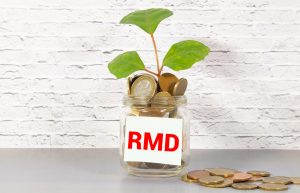
If your computer is more than a year old it is likely not running as smoothly as it did when you first purchased it. In this article we hope to provide some steps you can do to help it perform better.
- This is familiar advice, but it is critical and always is a good idea: Keep your computer and its security components up to date. Software companies are always improving their software and making changes that address flaws in security and performance.
- If you are not using Windows 10, consider upgrading as long as your hardware will support it. If you are running Windows 8 now you will likely be able to run Windows 10 and see a little better performance.
- Remove unneeded programs from your computer. When a computer ships from the manufacturer, it is pre-loaded with a lot of applications, some of which are trials of applications you didn’t purchase. However, the manufacturer would like to up-sale to you by allowing you to use the features for a little while. If you are not using these applications, it is recommended that you uninstall them and save your computer’s processing time. Often these programs will run in the background even though you have made the choice to not purchase the full program. Over time these demo programs will accumulate. If they don’t cause your computer to slow down, they can take up space on your system’s hard drive. To uninstall programs from your computer open control panel and select “Programs and Features.” In the resulting dialog box, review the list of installed applications and select the option “Uninstall/change.” Follow the prompts and complete the uninstall process. We recommend that you do not uninstall any updates as they are needed by the operating system.
- There are a lot of applications that purport to clean up your computer and make it run faster. Unfortunately, for every one application that does a great job, there are 10 that are scams and seem to only cause your computer more trouble. We use a utility called CCleaner by Piriform. (www.piriform.com) This little app will clean up your temporary files in just about every browser as well as files that are no longer needed on your computer.
 It takes about five minutes to run and will help you keep your computer clean. This program also includes a registry cleaner, which will remove old information that may be lingering in the registry.
It takes about five minutes to run and will help you keep your computer clean. This program also includes a registry cleaner, which will remove old information that may be lingering in the registry. - As you use your computer you will unintentionally build up files that will cause your systems to slow over time. There is a built-in disk utility that comes with all versions of Windows that will help clean up these files and potentially free up a lot of space on your hard drive. If you are running Windows 7 and later you can click on the start button and type: “Disk cleanup.” The disk cleanup program should be first in the list. Launch this application. Upon opening the application it will analyze your computer for temp files and any other files that can be deleted. Selecting “OK” after launch will begin the cleanup process.
- Your computer relies on air flow to keep its components cool. A computer that is overheating will run slow and eventually have a major malfunction. Because the computer continually pulls air from the room it will also pick up and dust and dirt that may be airborne in its environment. This dust and dirt will collect inside the computer and build up to a point where it will not be able to properly cool the components. Regularly checking the inside of the computer and keeping it dust free will ensure that your system will run longer and cooler.
- Beyond all of the suggestions above, there are some physical upgrades that can be made to your existing computers that will improve performance. One such upgrade is to change out your existing hard drive to a solid stated hard drive (SSD). SSDs are much faster and will allow your computer to boot and access data very quickly. Some systems will even boot up in seconds. SSDs are more expensive than traditional hard drives and will have to be sized according to the needs of your system. Another hardware upgrade option is to add more memory to your computer.
If you have any questions about the information included in this article please contact the IT Department and we will be glad to assist you in your efforts to maximize the usefulness of your computers.


